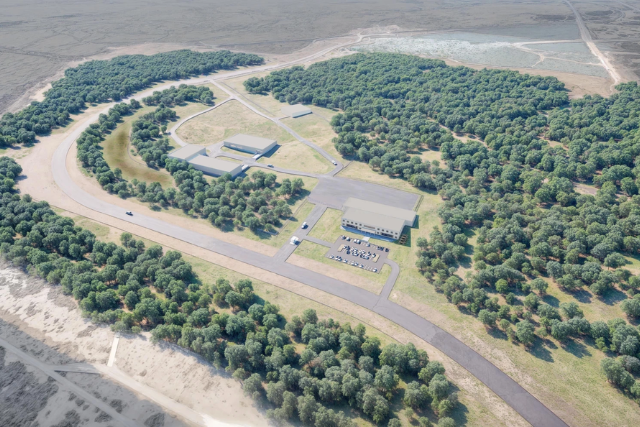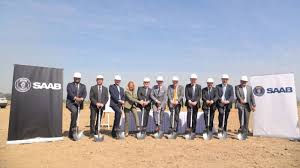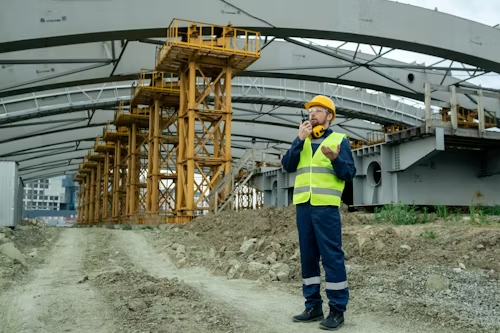
GRAYLING, Mich. — Swedish aerospace and defense firm Saab is advancing construction on its new munitions assembly plant in Grayling, Michigan, with full operations slated to begin in spring 2026. The facility, which broke ground in April 2024, will be responsible for assembling shoulder-fired XM919 munitions and ground-launched small-diameter bombs (GLSDBs) for the U.S. Army.

“This project represents a strategic and values-aligned investment,” said David Howie, Saab’s lead project manager for the Grayling facility. “We looked at multiple states across the country, and Michigan stood out because of its supportive state and local leadership and strong community values.”
According to Saab, the Grayling site will not manufacture explosives or mix chemicals onsite. Instead, it will assemble pre-manufactured components. The company emphasizes its commitment to safety and transparency, noting that nearby Camp Grayling’s certified range will be used for testing, with no significant noise increases expected.
“There probably isn’t a better company to be coming into the Grayling area in northern Michigan because of Saab’s values with priority on community and environment,” Howie added.
Backed by $31.9 million from the National Defense Authorization Act, the plant is expected to employ 70 people in 2025 and expand to 100 by 2027. Roles range from HR and engineering to maintenance and assembly, with starting wages between $25 and $30 per hour, and a median annual salary of $120,000—more than double the current Crawford County median income of $58,614.
“We are already bringing in residents from Grayling and those with connections to the area,” Howie said, noting that 20 employees have already been hired.

Matt McCauley, senior vice president of regional development at the Michigan Economic Development Corporation (MEDC), said the project will strengthen the region's economy and raise per capita income, while supporting local infrastructure upgrades such as roads.
“By providing more jobs and greater private investment in the community, the community can gain and enjoy more full-time, year-round residents,” McCauley said.
Despite the economic potential, some residents and environmental advocates remain concerned about the project’s broader implications.
When Saab first introduced the project, Howie said it was met with “fantastical, horrible” accusations, but that public perception has improved through consistent community engagement and transparency.
“I spent a lot of time just educating and communicating with the public,” he said. “That’s led to a much better understanding and acceptance of us being in the region.”
Still, public opposition remains vocal. Some local residents view the plant as part of a larger effort to militarize northern Michigan and question the political motives behind its development.
Jason Teddy, a retired state police officer and Camp Grayling official, expressed his concerns:
“My issue is that it’s going to start with Saab and there’s going to be more coming,” he said. “It’s a foot in the door.”
Teddy also believes the facility is part of a broader political strategy by Michigan Gov. Gretchen Whitmer to court economic and patriotic support through defense sector growth.
Opponents also cite the area's history of PFAS contamination, stemming from Camp Grayling’s training operations. PFAS—harmful “forever chemicals”—were found in the local water supply in 2016. Though Saab conducted environmental impact studies for its facility and concluded that there would be no adverse environmental effects, some residents remain unconvinced.
A petition launched in January 2025 to halt the project garnered over 650 signatures, citing concerns ranging from environmental degradation to ethical opposition against the weapons industry.
The petition claims that the weapons built at the facility “will only fuel more violence and suffering.”
As construction moves into its next phase, Saab remains committed to its Grayling footprint, with a focus on building a stable, well-paid workforce and partnering with the local community for mutual benefit. The facility is expected to become fully operational by early 2026.
“We’re proud to be building here, and we hope to become a long-term, responsible partner to the people of Grayling,” Howie said.
Originally reported by Mia Kerner in WCMU Public Media.